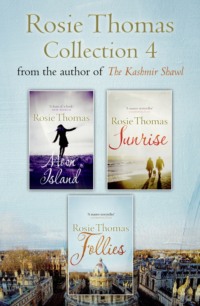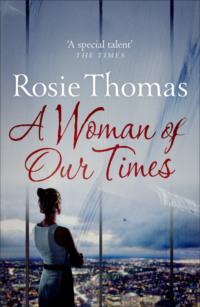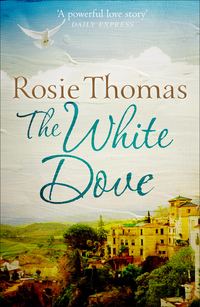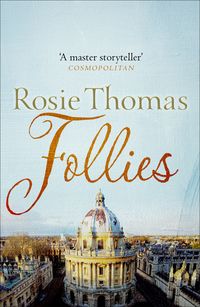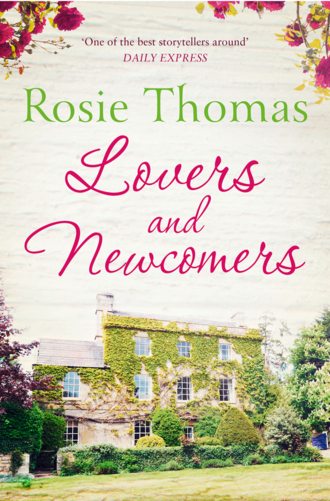
Полная версия
Lovers and Newcomers
‘Sorry,’ he muttered.
‘Why? You’re doing your job.’
The boy wasn’t looking at him. His gaze was fixed on the earth.
‘There’s something here.’ He knew he should keep the discovery to himself, maintain a professional detachment, but he couldn’t help blurting it out. His fist closed tightly on the handle of his trowel and it was all he could do to stop himself in his eagerness from lunging back at the find and gouging at the remains.
Colin heard how his voice shook.
‘What? What is it?’
The boy glanced quickly past him. Miranda and Katherine sat a way off, talking. Amos was still telephoning, the site crew lounged in the sunshine.
‘Look.’ He pointed downwards.
Out of the earth close to the edge of the trench, the rim of something smooth and curved now protruded. Crusted with dirt, it might have been taken for a large piece of broken glass or pottery, but the archaeologist had already rubbed an inch of it clean. The sun struck a dull gleam out of precious metal.
‘Good God,’ Colin said.
‘Yeah. And a bit,’ the boy agreed.
‘What happens now?’
‘Well, it doesn’t happen every day, does it? It’s killing me but I’ve got to wait for my field supervisor to show up. I don’t know much, but I’m pretty sure this is big.’
In the middle distance, a car drew up at the point where Amos’s driveway would one day meet the curving route to the main house. A uniformed policeman got out and opened the gate, then the patrol car bumped slowly over the builders’ track to the site.
‘Christ, now here’s the cops. I hoped the boss would get here first,’ the boy sighed.
‘You can handle it,’ Colin told him. The boy’s resemblance to someone he knew was no longer troubling. It came to him that this wasn’t actually Jessie’s boyfriend from the first evening in the pub, the one she had squabbled with about ownership of the dog, but the two of them were certainly sufficiently alike to be mistaken for one another.
A second solid policeman emerged from the car. Amos made straight for the pair of them, with the site manager bobbing at his side.
‘Here we go then,’ said the archaeologist as he climbed reluctantly out of the trench.
Across the field, alerted by the sighting of police in the driveway of the house, Selwyn was hurrying towards them with Polly moving more slowly in his wake.
‘Has there been a murder?’ Selwyn asked.
‘Not recently, by the look of it,’ Colin told him. ‘Although I think Amos would prefer it to be a straightforward drug-related shooting. History may take longer to unravel.’
Amos said, surveying his site later that afternoon: ‘So, the monkeys have taken over the zoo.’
A van arrived, with ‘Anglian Archaeological Services’ painted on the sides. Several archaeologists of various degrees of seniority climbed out, donned helmets and fluorescent jackets with AAS printed on the back, fanned out and began measuring, pegging lines and scribbling on clipboards. The field supervisor, a lean bearded man in his forties, made a series of urgent calls. A frame tent was brought out and quickly erected over the trench, and the white nylon fabric sucked and billowed in a rising wind. The policemen conferred with the supervisor, the intermittent crackle of voices from their radios carrying across to where Selwyn stood joking about how English Heritage and the county archaeologist would never let Amos dig the channels in the earth for his futuristic ground exchange heating now that there was known to be treasure beneath.
‘Buried gold,’ Selwyn murmured. ‘Who knows, Amos, you might just have got even richer.’
‘Probably not, under the 1996 Treasure Act,’ Amos retorted. But that they should be even discussing this sharpened the sense that an unwelcome change was coming to Mead.
Another car wound its way towards them and yet another archaeologist emerged, bearing a licence from the Ministry of Justice to allow the human remains to be excavated. A copy of it was formally pinned to the door of the Portakabin. Amos read the licence and gave a curt, unwilling nod to acknowledge that, for now at least, he would have to agree to a suspension of work. It was clear that there would be no more progress on the site for the time being, so the builders packed up and went home. The police lingered long enough for the osteologist who had arrived in the van to assure them personally that the uncovered bones were hundreds of years old, then they folded their double bulk back into their patrol car and drove away.
The bearded field supervisor introduced himself as Christopher Carr. He promised that as soon as his team had had a chance to make a first assessment of the finds, Mr Knight would be informed. In the meantime, it was important that the excavation be conducted methodically in order that no vital information or clues were lost in the process, and they would understand that, wouldn’t they? His young assistant, Kieran, had acted correctly in calling a temporary halt to the site work. He thanked Amos for his cooperation.
‘When can we have a look?’ Katherine asked him, then glanced away, as if she suspected it had been in some way wrong of her to ask.
‘As soon as there is anything interesting to see,’ Christopher told her. ‘But I would be grateful if for the time being you wouldn’t mention the find to anyone at all outside this group. Sightseers and the press are never helpful on the scene until we are ready for them.’
Amos struck his forehead quite hard with the heel of his hand.
Katherine and Polly left the site to go back to the house and make sandwiches, but Miranda found that she couldn’t leave the site while so much of Mead’s unimagined history was being uncovered. The archaeologists moved in and out of their tent, watched by Miranda and the others from their picnic place. They could hear the metallic clink of trowels. Bags and buckets filled with spoil were brought out, and a young woman with dreadlocks longer than Kieran’s knelt to sift the loose earth through a sieve.
Amos ate smoked salmon sandwiches and loudly fumed about the delay, until Miranda snapped at him.
‘It’s my land too. My home for twenty years, Jake was born here. Can’t you acknowledge that whatever is lying in that trench might have at least a comparable importance to your house?’
At once Amos put his big hand on hers. ‘Of course, Mirry. I do apologize. How thrilling for Mead if this does turn out to be a major discovery. But I don’t think you’ve quite got the hang of what a disruption it may turn out to be.’
‘Let’s wait and see, shall we?’ Miranda said quietly. Colin lay back and seemed to fall asleep.
At the end of the afternoon, Kieran came out of the tent and crossed to where they still waited. His face was flushed under the faint pockmarks.
‘Would you like to come and take a look?’
They got to their feet and followed him.
Within the white tent, sheltered from the wind that had got up, it was warmer and surprisingly still. The fabric rippled and snapped with small popping sounds. The pleasantly diffused light coupled with the strong scent of trampled grass was reminiscent of a garden fête or agricultural show. The archaeologists were lined up beside their trench, mostly with their hands folded, looking downwards like proud but modest exhibitors. A photographer’s tripod and camera stood in place at one end of the tent.
Miranda looked down and caught her breath.
The earth had been cleared partially to expose the skeleton. It was dark, discoloured and broken, but still shockingly human. It lay on its left side, the legs bent up towards the chest and the forearms extended. Earth filled the collapsed ribcage and crusted the pelvic bowl. The skull was tilted at an angle, the eye sockets blinded with dirt and the jaw with a rim of teeth seeming to grin into infinity.
Two feet away from it lay a second skull, much smaller, and the ribs of a young child.
Only when she had taken this in did she see that resting between the jaw of the larger skeleton and the framework of its ribcage lay a band that once would have circled the neck. To the side of the body, the curved edge of metal that Colin had glimpsed had been further exposed. It looked like the edge of a large plate. A raised pattern that might have been part of a scroll or leaf design was just visible.
Stillness spread outwards and seemed to press against the nylon walls and roof of the tent, where the wind chafed.
At Miranda’s side, Colin remembered Stephen’s funeral in the village on the edge of the Yorkshire moorland, and the priest and the mourners gathered at the edge of the open grave as handfuls of earth thudded on to the coffin lid. He raised his head now in an attempt to blot out the memory, searching along the line of silent people as if he hoped to see a priest amongst them.
He was not a religious man, but he would have liked to hear some words of blessing or a simple prayer spoken over these bones.
The first person to break the silence was Christopher Carr. His voice was low and they had to listen to catch his words.
‘This is an important discovery,’ he said. ‘Perhaps very important. We have a rich burial here, probably dating from the later Iron Age. We may be looking at a prince, a tribal leader at least, who was buried with his symbols of rank and power and provisions for the afterlife.’
‘What about the child?’ Katherine asked. This time she looked directly at Chris. He nodded sympathy at her.
‘We can’t tell yet. Perhaps it was an attendant, maybe even a human sacrifice as part of the funeral ritual. Our osteologist, that’s David over there, may well be able to establish the cause of death.’
David was a small man with glasses. He smiled and then suppressed it, all the time looking as if he couldn’t wait to start handling the bones. The atmosphere was slowly lightening. The archaeologists began quietly to stack their tools. Kieran ducked out of the entrance with one more yellow plastic bucketful of loose earth.
One by one, the Mead people turned away from the trench and its contents. As the shock of staring death in the face subsided, they became aware that these relics were from a time so distant that they could hardly connect with it.
Chris said, ‘There’s one more thing. We’ll be leaving a security guard here overnight. The site will have to be protected until the artefacts have been removed to a safe place.’
Miranda demanded ‘Why? This is a private estate. No one comes here.’
‘Forgive me, Mrs Meadowe. We don’t know yet what these grave goods are, or what else we might find. If they should turn out to be alloys of precious metals, or even solid gold, imagine what the material alone might be worth, without adding up the historical value.’
Amos began to say something, then stopped himself.
‘I see,’ Miranda said, although she was only just beginning to. This discovery was going to change the delicate balance of life at Mead, the life she had wanted for them all, that much was already clear.
Chris continued, ‘With your help, we’ll keep this discovery quiet for as long as possible. But in my experience news inevitably leaks out sooner or later, and you’d be surprised at the nighthawks who will turn up looking for a piece of treasure to keep for themselves.’
Outside the tent it had grown chilly and the sky was overcast. Another van had arrived, this one marked ‘Lockyer Security’. A very large shaven-headed man sat in the driver’s seat, frowning over a print-out.
Amos stood in front of Chris. ‘Can you give me any idea of how long?’ he asked yet again.
‘How much time my team will be granted to complete the excavation is the decision of the county archaeologist, and that depends on how important he judges the findings to be, in terms of local and national history.’
Amos’s lower jaw was protruding now, a dangerous sign. ‘And so?’
The archaeologist sighed. ‘If I have to put a frame on it I’d say something more than a few days, but not as long as several months. We’ll do the job as quickly as we can.’
‘Thank you,’ Amos said, as if he were dismissing the most unreliable of witnesses.
Chris turned to Katherine, who stood a yard behind her husband. ‘I’m sorry,’ he told her.
Katherine’s smile was transforming. Miranda saw it, and so did Polly, although Amos wasn’t looking at her. ‘Please don’t be,’ she said. ‘There’s no need.’
As he passed Kieran, Colin asked him, ‘Did I meet your brother, at the Griffin in Meddlett, with a girl called Jessie and a dog?’
‘Yeah, that’ll be him. Damon.’
‘I thought so. You’re very alike.’
‘Not really,’ Kieran frowned.
The security guard lumbered out of the shelter of his van, and Amos made his comment about monkeys and the zoo.
They sat in the kitchen, over the remains of dinner. Selwyn had taken the blue chair next to the range and he balanced it on two legs and drank whisky as he surveyed the room. They had been talking all evening about the day’s discovery. Amos insisted that he was no expert on the exact terms of the Treasure law, whilst leaving no doubt at all that he knew far more than the rest of them. He explained that if they fell within the definition of treasure, the finds would belong to the Crown. If they turned out to be spectacular, or historically significant, they would probably be bought by a museum. There might be a reward for the landowner.
‘The best reward I can think of would be to get my house built,’ he growled.
The others sighed. They had heard this enough times already. Miranda cupped her chin in her hands and looked at Amos.
‘Jake would have loved the Warrior Prince of Mead.’
‘The Warrior Prince?’ Selwyn tried out the sound of it, dangerously tipping his chair and steadying himself with one hand burrowed amongst the tea towels and laundry hanging from the bar at the front of the range. ‘This could make us as famous as Sutton Hoo. English Heritage will come and put up a tearoom. There will be boxed fudge, and a coach park.’
‘No, there will not,’ Miranda said sharply.
‘Amos might decide otherwise. He owns the land, I believe.’ Whisky made Selwyn malicious.
‘Shut up, Sel,’ Polly advised.
Amos got up from his chair and crossed to Miranda’s side of the table. He hovered behind her chair, not quite able to do what he wanted, which was to hug her.
‘Mirry, let’s promise each other this minute in front of witnesses that whatever happens, this land business and prince business and the skulls and archaeology drama will not compromise our friendship. I solemnly promise there will be no tearoom, and certainly no fudge. Can you forgive me for happening to own the little acreage under which the bones have turned up?’
Miranda had never been immune to the force of his deliberate charm.
She answered solemnly, ‘I promise, too. And there’s nothing to forgive. The prince belongs to Mead itself, regardless of whose bit of turf he’s lying beneath. That’s what Jake would say.’
‘I wish he were here, too,’ Amos said. He sketched a sort of kiss in her direction and went back to his seat. Smiling dangerously over the rim of his glass, Selwyn studied him.
Polly’s mobile rang. She took it out and inspected the display.
‘Omie, hello darling. Are you all right?’
‘Doesn’t anyone else want another drink?’ Selwyn called out.
‘Yes, that’s Dad.’ Polly glanced up. ‘Sorry, all. No, Omie, that’s not what I meant. Of course I’m not apologizing to anyone for you ringing me. What’s the matter? Wait a minute.’ She got up and went out into the hall. They could hear her talking, and then she moved further away. Selwyn let his chair crash forward on to all four legs.
Katherine carried dishes to the sink, then leaned to look out into the yard. It was raining hard, and puddles glimmered in the porch light from their wing. Polly and Selwyn’s side was a darker slab of darkness.
‘Pretty bleak for the guard,’ she said. ‘I wouldn’t like to be out there with only the dead for company, would you?’
‘They’re not going to come back,’ Colin said.
Miranda broke in, ‘No. Except, in a way they have, haven’t they? We’re thinking about them, peering down the centuries, dressing them in our minds in their necklaces and attaching stories to their lives and deaths. I can’t get that child’s skull and ribs out of my head.’
Amos took Katherine’s arm. ‘Come on, old girl. History’s all bones. We’re going to bed now.’
The Knights went out into the yard. Colin collected up his book and laptop, and said goodnight. Selwyn and Miranda were left alone.
‘Barb,’ Selwyn began softly, in the voice that he used only for her.
‘No.’
His mouth curled, making him look dangerous again. ‘Is that no generally, as a blanket edict, or in relation to something specific?’
Since the bathroom day, Miranda had avoided being alone with him. Now the possibility that Polly might step back into the room at any moment held her in a bubble of tension. Each of her senses was amplified. Miranda could imagine so vividly what it would be like if he left his chair, took her in his arms and put his mouth to the hollow formed by her collarbone, that it was as if he had actually done it. She swallowed, her mouth dry.
‘Just no,’ she whispered.
‘I want to touch you.’
‘I know.’
They listened to the rain.
‘What shall we do?’ he asked, as much of himself as to her.
‘We’ll live here at Mead, value our friendships, and get old together.’
There was a shocking crash as Selwyn’s glass hit the red tiles at his feet and smashed into fragments. Neither of them could have said for certain whether he had thrown it or accidentally let it fall.
‘I don’t want to get old.’
There was so much vehemence and bitterness in his voice that it frightened her. ‘I don’t want to hear any more about death. Jake’s dead, Stephen’s dead. There are skeletons at the bottom of the fucking garden. What happened to the fairies, then? I want to live now, Mirry. I want you.’
‘I know,’ she whispered again.
If Polly hadn’t come in at that moment, she would have gone to him.
‘That was Omie,’ Polly said. She flipped her phone shut.
‘Was it?’ Selwyn sounded dazed.
‘I just said it was. There’s broken glass all over the floor.’
He sighed. ‘I dropped my drink.’
‘Probably just as well.’ Polly had already gone for the dustpan. He took it from her and roughly swept up the broken pieces. Miranda stood up, very stiffly, as if all her joints hurt.
‘It’s been an interesting day, hasn’t it? I’m going to bed. Sleep well, you two,’ she said.
Polly and Selwyn lay on their bed under the tarpaulin. Water dripped steadily above their heads and ran off into an enamel bowl. The various drips into various receptacles around the room sounded like an elaborate piano exercise.
‘Are you ready?’ Selwyn asked.
‘Yes.’
He leaned up on one elbow, his shadow looming grotesquely on the opposite wall. He fiddled for a moment with the knob and then turned out the gas lamp. The mantle glowed red for two seconds and then they were in darkness.
‘Were you and Miranda arguing?’ Polly asked.
‘No.’
She waited, but he didn’t add anything.
She was intensely conscious of her heavy thigh and the six inches that separated their two bodies. If Selwyn and Miranda hadn’t been arguing there was something else going on, and that possibility worried her much more than routine squabbling. History meant that there was always a buried connection between the two of them, but Polly was beginning to realize that she had underestimated the pull of it. Living here as closely as they did, seeing each other constantly, was disinterring the ancient foundations.
The dripping seemed to grow louder, as if the drops were hitting her skull.
‘I’m concerned about Omie,’ she said at length, casting her fears in a less threatening mould.
Selwyn gave an impatient twitch. ‘That’s nothing very new. What is it this time?’
‘She’s angry with us. We’ve sold their home, moved up here. She says it’s as if we’ve abandoned them.’
There were five drips, then six. Three of them came very close together, almost as one.
‘Poll, our children are all adults. We’ve brought them to this point, healthy and educated and relatively normal. Or you have, mostly, I’m not claiming any particular glory for it. But we’ve got to let them live their own lives, now, and in the future. You can’t be their guardian and safety net for ever. Even you can’t do that.’
‘I could. Isn’t that what parents are meant to do?’
‘No, I don’t think so.’
‘Omie says she thinks there’s something up with Ben. Alph does, as well.’
Despite her anxiety, Polly felt drowsiness beginning to smother her. She was always tired, these days. She knew that her voice had taken on a meandering quality.
As if from a long way off she heard Selwyn say, in an impatient mutter, ‘If there’s something up with Ben, as Omie says, then we’ll hear about it.’
‘Yes,’ Polly finally agreed. She turned on to her side, away from him.
Selwyn lay on his back, unmoving.
FOUR
Gardening makes me think of Jake.
He’s here in all the stones and shadows of Mead – or rather his absence is, because rational recall often fails me and I look up expecting to see him, only to experience all over again a miniaturized spasm of shock and loss – but it is the garden that contains the most vivid memories.
The first time he brought me here, when we were newly in love and I could still hardly believe that there were no obstacles to our being together for ever, we sat against the wall of the house, over there on the wrought-iron bench where my discarded jacket and gardening apron now lie. It was the end of May, and the bricks were warm with the day’s sunshine. There were sprays of thick cream roses arching off the walls, and wood pigeons noisy in the trees.
‘Could you live here?’ Jake asked me.
It was like being asked if I thought I could endure Paradise.
‘You’re an urban woman,’ he said, when I asked why he doubted it. ‘You might get bored here with me. You might feel isolated from London, from acting and all the people you know and the life you’re used to.’
I told him that I loved him, and the only life I wanted was with him, and that was the truth.
I was turning forty and Jake was already sixty. I had had a modest success as a stage actress, but I knew that I was never going to be as good as a dozen of my contemporaries. Hollywood casting directors were never going to come calling. I had had numerous boyfriends and lovers after my first and only fiancé, Selwyn, but this sense of rightness with a man, of there being nothing to qualify or redeem in our relationship, was absolutely new to me.
Jake had been briefly married in his thirties but there had been no children, and his wife seemed to have made little impression on the house or indeed on him. After that, I assumed, there would have been girlfriends; after all I had met Jake at that most unpromising of romantic opportunities for a single woman, a dinner party given by a couple I had met on holiday. He had singled me out, and the next evening we went out to dinner on our own. It was hardly likely that I was the first to receive this sort of attention from him, but I believed him when he promised me that I would be the last.
Although he didn’t bring me here immediately I learned very quickly, just from the way he talked about it, that Jake was inseparable from Mead. And as soon as he did invite me and I began to know the place, I understood why.
He was offering me himself, and he didn’t do it lightly.
We sat on the wrought-iron bench and listened to the birds. The sun slowly sank, the bricks glowed as if they radiated their own light, and Jake turned to me.
‘Could you be a country wife, do you think?’



